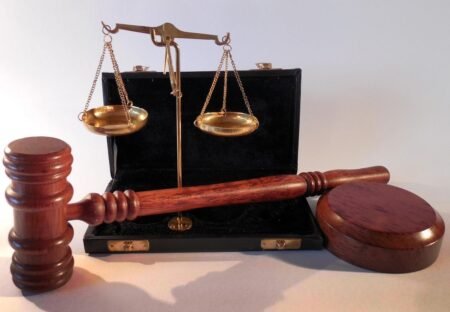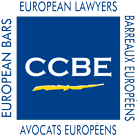A list of key EU legal terminology: S
Advertisement
Sanctions
The EU is moving, especially since the October 1999 EU Summit in Tampere, towards common sanctions for cross-border crimes like trafficking in drugs or human beings.
Schengen
The 1985 agreement and follow-up 1990 convention between Belgium, Germany, France, Luxembourg and the Netherlands on removing common border controls.
Schengen acquis
Consists of the 1985 Schengen Agreement, 1990 Schengen Convention and legislative instruments adopted by the Schengen Executive Committee that have been integrated into the EU Treaties, plus further development of those instruments within the framework of the EU.
Schengen area
The area covered by the countries participating in the Schengen Convention. As of December 2008, these include 22 EU Member States (Austria, Belgium, the Czech Republic, Denmark, Estonia, Finland, France, Germany, Greece, Hungary, Italy, Latvia, Lithuania, Luxembourg, Malta, the Netherlands, Poland, Portugal, Slovakia, Slovenia, Spain and Sweden) plus Iceland, Norway and Switzerland. Ireland and United Kingdom participate in only some aspects of the Schengen acquis.
Schengen Convention
Signed in 1990 and taking effect in 1995, this convention abolished the internal borders of the signatory States and created a single external frontier. The set of common rules defines the conditions for entry into the Schengen area, including the types of visa and travel documents needed, and how controls at external borders have to be carried out.
Schengen information system – SIS
An EU database, which police and consular agents consult to find out information on individuals, or goods thought to be lost or stolen.
Scoreboard
A bi-annual European Commission communication to the Council and the European Parliament which spells out the respective responsibilities of all institutions and Member States to develop the European Union into an area of freedom, security and justice. The scoreboard is produced by the Commission as requested by the Tampere European Council meeting in October 1999.
Secondary movements
When asylum-seekers move from one Member State to another and sometimes lodge a second application. The EUs asylum policy aims to reduce such movements.
Security
EU citizens have an automatic right to travel freely in the EU, although this right may be restricted on grounds of public security or public health.
Security of transactions
As e-commerce continues to grow, so too does computer-related crime. One of the EUs priorities is to enhance the security of Internet transactions to prevent, for example, credit card fraud.
Seizure
Closer cooperation between EU police and customs officials has lead to more seizures of illegal drugs, firearms, laundered money, contraband alcohol and tobacco and paedophile material.
Self-employed
EU citizens who are self-employed have the right to establish themselves and provide their services in all Member States.
Self-employment
Where someone works for him or herself. Self-employed non-EU nationals may be admitted if they have sufficient resources to take up their activity.
Separated couples
Judicial decisions on the break-up of married couples must be recognised and enforced across the EU, according to the May 2000 Brussels II regulation.
Separation
In the event of a separation or break-up of matrimonial ties, the EU supports the childs fundamental right to maintain regular contact with both parents.
Simplified extradition
If a person consents (gives his or her agreement) to be extradited, a simplified extradition procedure will be applied. For further details see the rules of the Convention of 10 March 1995 on simplified extradition.
Smuggled goods
In the context of EU customs policy, this refers to the illegal smuggling of substance over borders, such as drugs, paedophile material, alcohol and tobacco.
Smuggling
EU police and customs officials cooperate closely to prevent smuggling of drugs, firearms, nuclear materials, pornography and goods liable to excise duty.
Sporting events
Increasing violence at European football matches has prompted the EU Council of Ministers to issue a handbook for national police forces on preventing and controlling such violence.
Stabilisation and association agreement
A bilateral agreement, which establishes a single basis for assisting a country. Each EU candidate country has such an agreement with the EU.
Stability pact
The Cologne EU Summit in June 1999 set up a stability pact for the Balkan countries, which has facilitated agreements between these countries on fighting corruption and the return of refugees.
Statistical data
In order to develop a common EU asylum and immigration policy, EU-level statistical tools are needed to provide information on migration flows.
STOP programme
European Commission sponsored programme for the EU Member States to coordinate initiatives and information between Member States on crimes related to human trafficking, including the sexual exploitation of children and women.
Subsidiarity
A key principle of EU law, whereby the European Community shall only take action if its objective cannot be better achieved at a more local level.
Subsidiary protection
The term used for the protection given to certain categories of persecuted people, who are not covered by the 1951 Geneva Convention on refugees.
Surveillance
Cross-border surveillance of suspects by national police and customs authorities is provided for in the 1967 Naples Convention and 1990 Schengen Convention.
Summit
In an EU context, this usually refers to the regular meetings or European Councils between the leaders of the 27 EU Member States. There are at least four such summits each year.
Source: European Commission – Justice and Home Affairs





